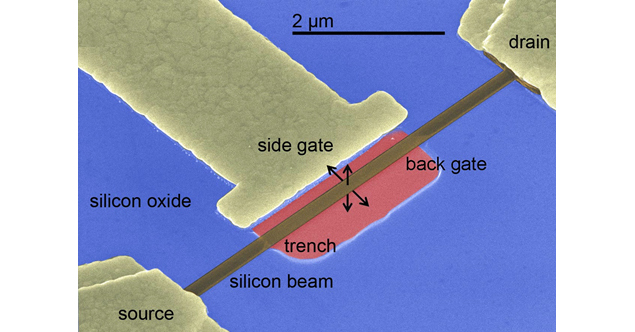
Tiny mechanical devices called 'nanoresonators' could help cell phone users avoid slower downloads and dropped calls, besides easing congestion over the airwaves to improve their performance.
"There is not enough radio spectrum to account for everybody's hand held portable device," said Jeffrey Rhoads, associate professor of mechanical engineering at Purdue University, who led the study.
The overcrowding results in dropped calls, busy signals, degraded call quality and slower downloads. To counter the problem, industry is trying to build systems that operate with more sharply defined channels so that more of them can fit within the available bandwidth, the journal IEEE Transactions on Nanotechnology reported.
"To do that you need more precise filters for cell phones and other radio devices, systems that reject noise and allow signals only near a given frequency to pass," said Saeed Mohammadi, associate professor of electrical and computer engineering from Purdue, who is working with Rhoads, doctoral student Hossein Pajouhi and other researchers, according to a Purdue statement.
Nanoelectromechanical resonators, created by the Purdue team, contain a tiny beam of silicon that vibrates when voltage is applied. Researchers have shown that the new devices are produced with a nearly 100 percent yield, meaning nearly all of the devices created on silicon wafers were found to function properly.
"We are not inventing a new technology, we are making them using a process that's amenable to large-scale fabrication, which overcomes one of the biggest obstacles to the widespread commercial use of these devices," Rhoads said.
In addition to their use as future cell phone filters, such nanoresonators also could be used for advanced chemical and biological sensors in medical and homeland-defence applications and possibly as components in computers and electronics.
Sources gadgets.ndtv

No comments:
Post a Comment